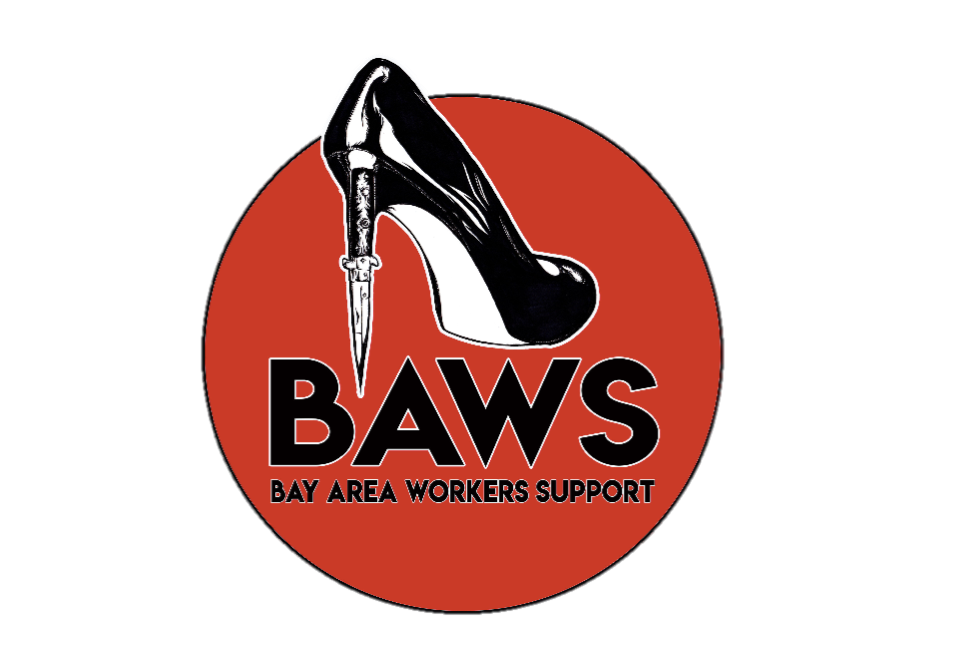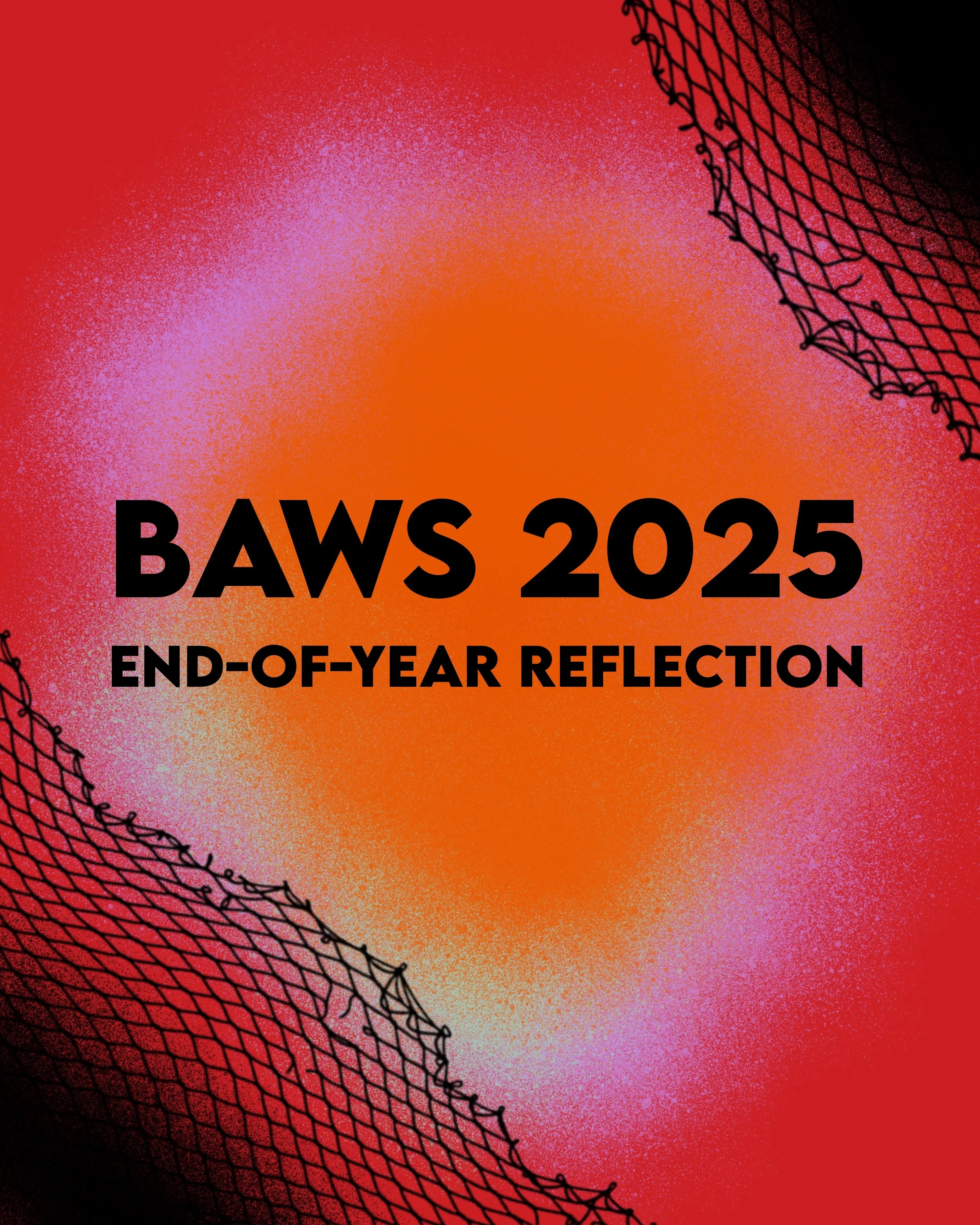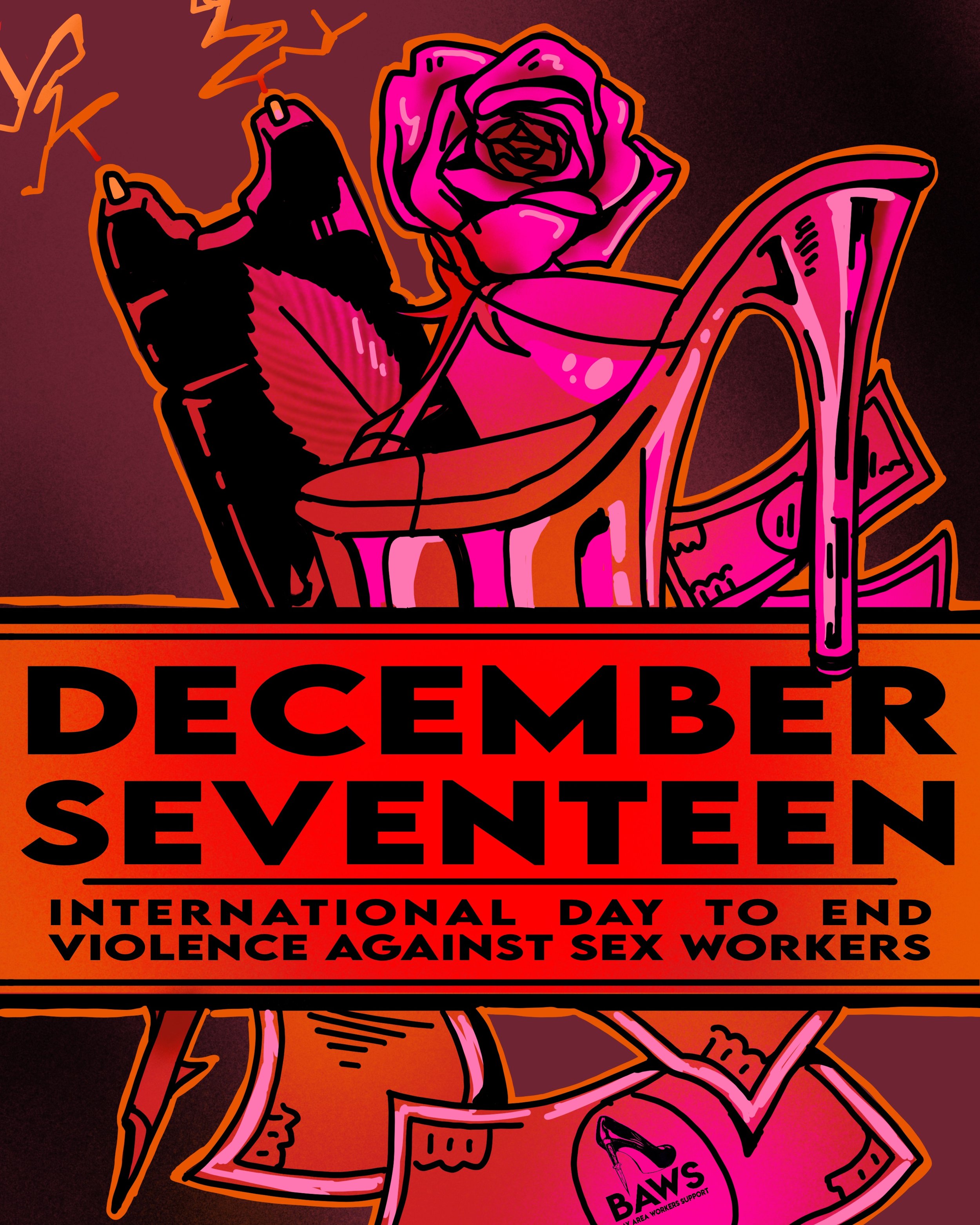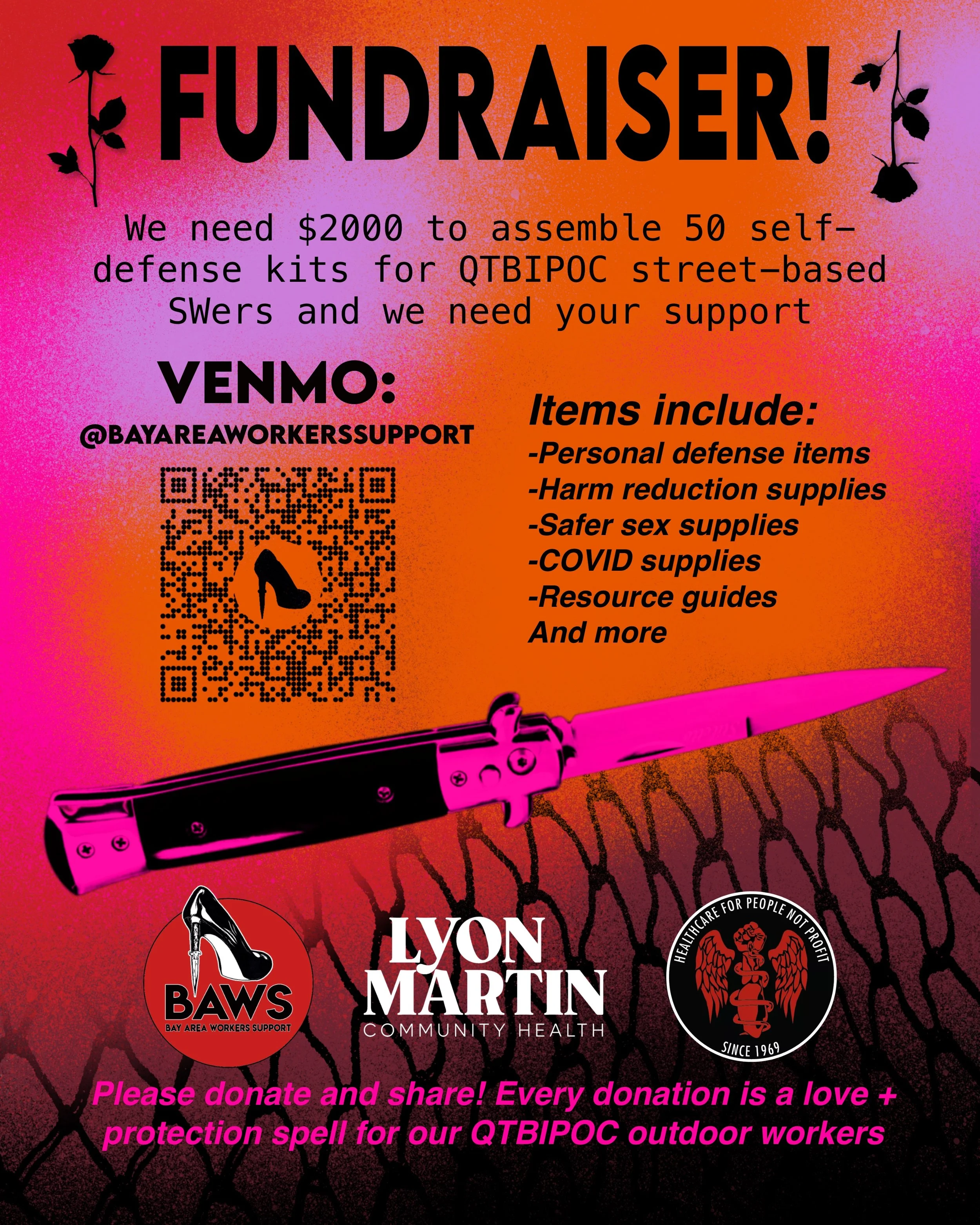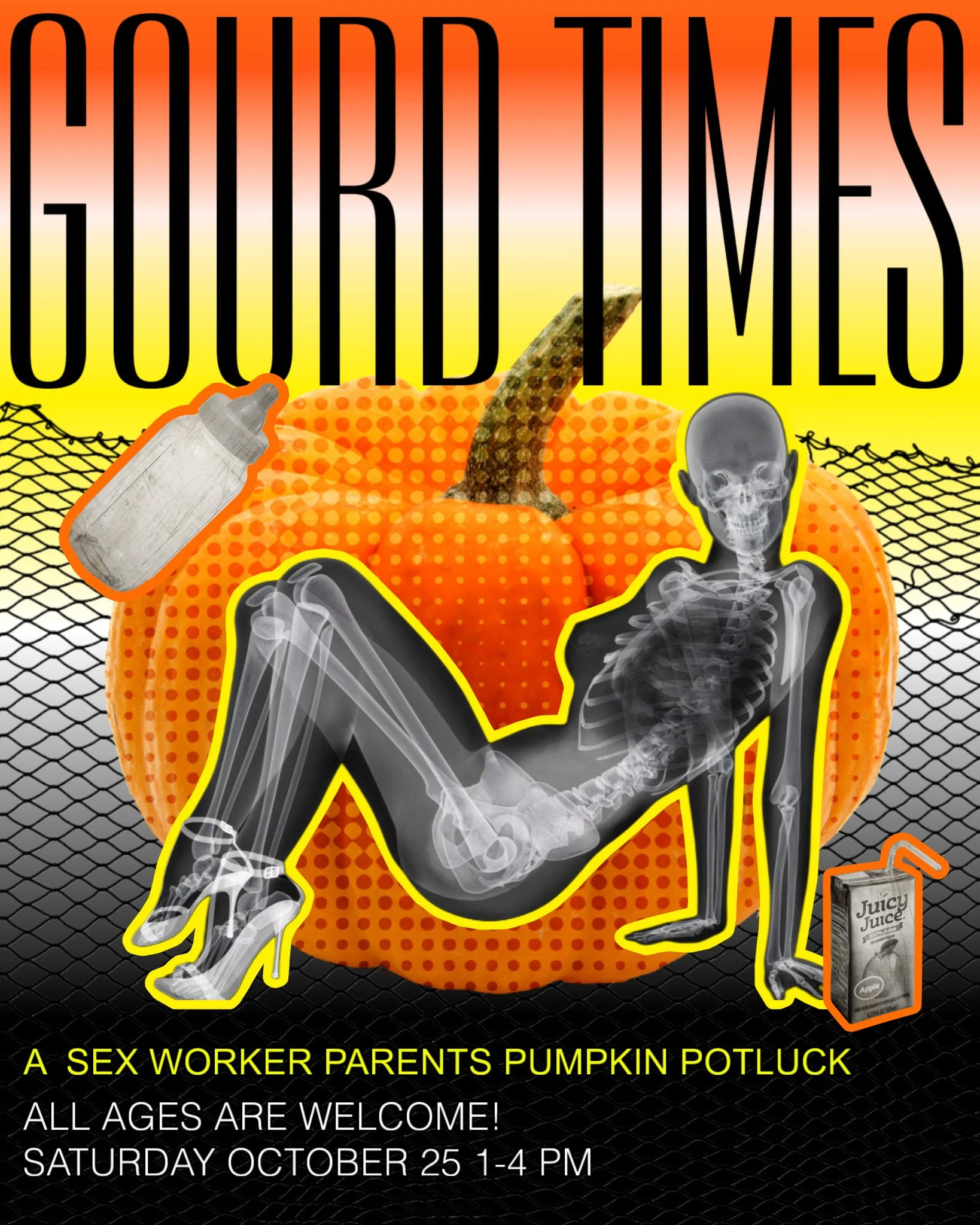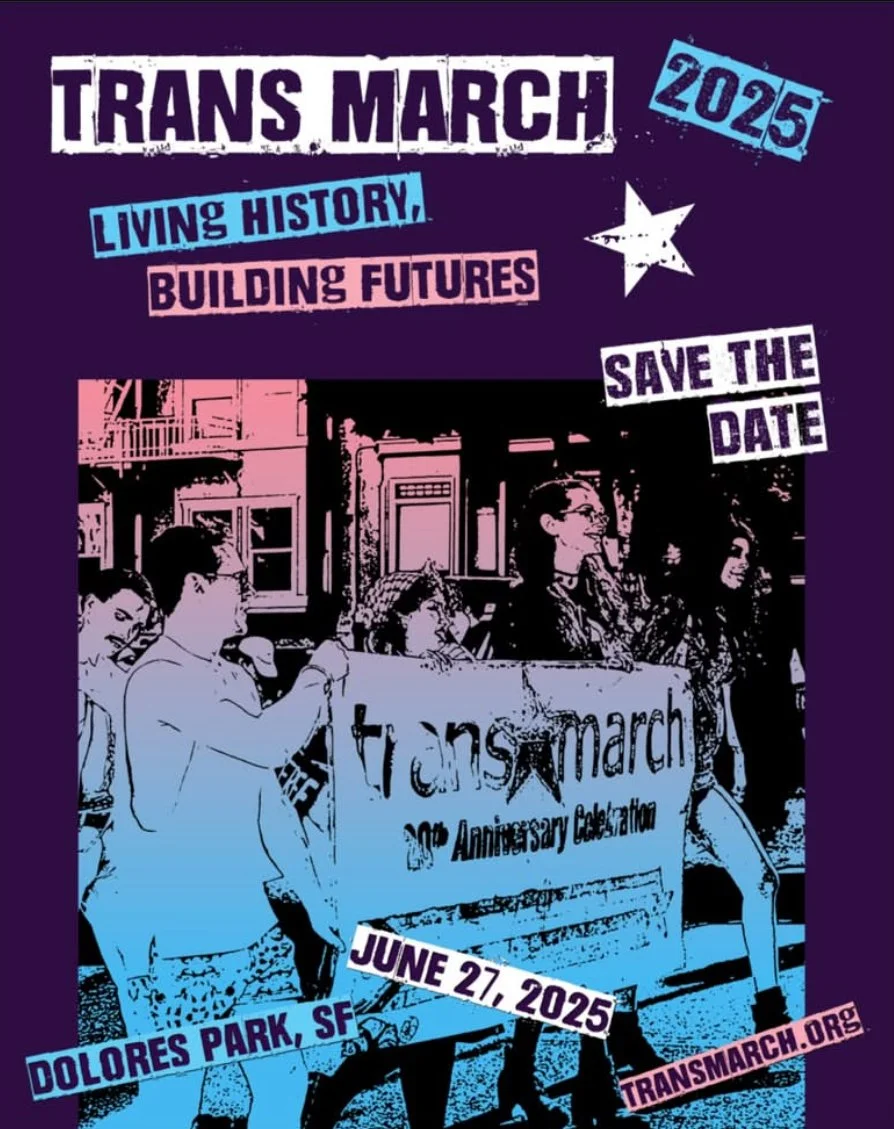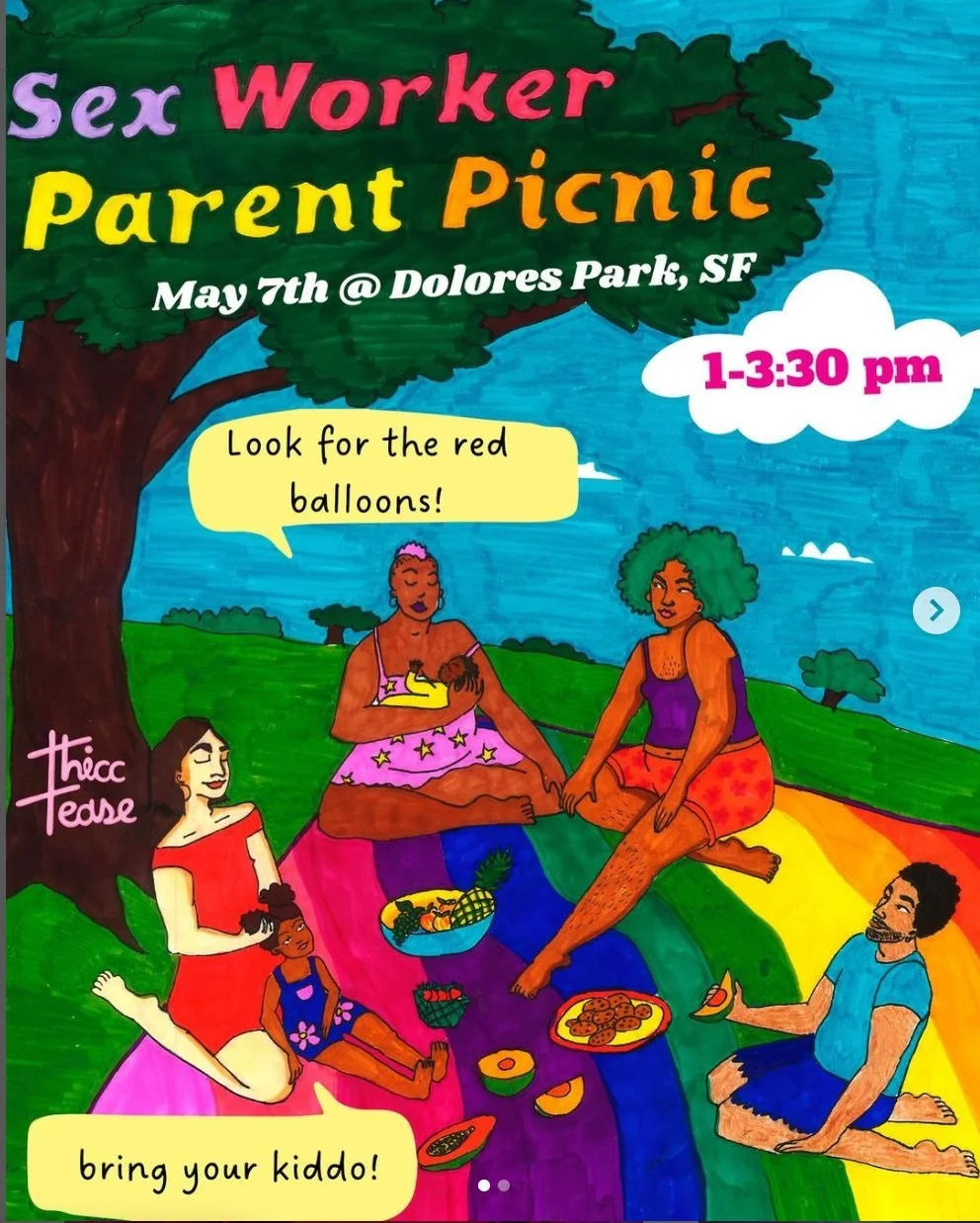A year of strengthening the sex worker-led foundation we stand on.
This year, we dedicated ourselves to fortifying BAWS from the inside out. We focused on building a foundation that brings more sustainability, intention, and pleasure to everything BAWS does.
BAWS continues to exist because local sex workers and community members show up with their time, talent, heart, and skills. Sharing our 2025 accomplishments is both a celebration and a way to stay accountable to the community we serve.
None of this happens without the Bay’s distinct sex worker pulse - our grit, our swagger, our history, and our movement lineage. We come from generations of workers, organizers, and culture-makers who know how to hold each other up.
What We Did in 2025
Strengthening Infrastructure
Grew our team. We hired and onboarded a Communications + Social Media Top, an Administrative Assistant, and an Interim Co-Director. Big expansion energy.
Deepened relationships with local and statewide sex worker organizations to build a stronger, more unified support network across the Bay.
Partnered with a Leadership Coach to help us align with our values, expand our team, build lasting internal systems of operation, and deepen our community reach.
We fine-tuned our systems: We clarified roles, wrote job descriptions, budgets, and made enough docs and spreadsheets to qualify as their own ecosystem. Somewhere, a Virgo Domme is smiling.
Creative Community: Art, Expression & Skill-Sharing
Held a weekly Sex Worker Art Club, cultivating a creative home for sex worker artists.
Facilitated 52 Tuesday Open Studio Sessions and ~30 Lust Lab sessions: over 180 hours of collective artmaking, experimentation, inspiration, and rest.
Hosted a Clothing + Art Supply Swap with our friends at Gender Adventurers in May.
Organized a group shoot at Filthy Studios in April, plus outdoor group photo sessions and collaborative social content days.
Gathered for countless low-key hangouts - supporting each other’s gallery shows and screenings, taking field trips to museums, cleaning up beloved art spots, and tending to community aesthetics together.
Public Presence & Advocacy
This was a year of grounding and deepening our roots. Thank you for supporting us through such a major building year.
Thank You to Our Supporters
BAWS exists because people like you choose to fund sex worker leadership.
In 2025, we were supported by New Moon Fund, Third Wave Fund, and, most substantially, contributions from individual donors. As the last sex worker-led organization in the Bay, recurring donations are what keep our programs alive and our outreach strong.
Monthly donors give us stability and the ability to respond quickly when our community needs support. If you can, please become a sustaining donor.
Even a small monthly contribution has a meaningful impact. And if donating isn’t accessible right now, sharing our link within your networks is also a huge help.
Donate Online: bayareaworkerssupport.org/support (tax-deductible)
Venmo: @bayareaworkerssupport
Community Asks for 2026
If you would like to support BAWS in the coming year, please email us at bawsorg@gmail.com.
1. Fundraising
Host a one-time or ongoing fundraising event.
Connect us with events, bars, restaurants, or businesses willing to donate a portion of their proceeds.
We welcome both one-time and recurring partnership opportunities.
2. Share Our Donation Link
Help widen our circle of care by sharing our donation link within your networks:
bayareaworkerssupport.org/support (tax deductible)
We also accept donations via Venmo @bayareaworkerssupport.
3. Grant Research
Support us by emailing us with links to institutional grants that align with BAWS. Relevant categories include sex work, queer and trans support, housing, domestic/gendered violence and intimate partner violence, single-parent support, and harm reduction.
4. Event + Resource Tabling Support Position Opportunity
We are looking for someone to support our in-person events by keeping our tables organized, managing merch, and offering a warm, connective presence to our community. Look out for an application in Spring 2026.
5. Social Media Engagement
Help boost our reach by engaging with our social media channels:
Looking Ahead to 2026
We’ve spent the last three years developing a framework that centers our values to guide us in our work. We’re stepping into 2026 with a clear vision shaped by Four Pillars that guide all of BAWS’s work:
In the seven years since BAWS’s inception, we’ve supported countless sex workers and community members. Without downplaying our impact, the work has often moved at the speed of urgency at the cost of our organizers. Now more than ever, BAWS is steadying our work to honor the pace and cadence of what each season of the year calls for. Our Four Pillars and Core Values of Autonomy, Pleasure, Sustainability, Connection, and Liberation are attuned to those lessons.
Keeping Liberation at the center, each season will center one pillar and one core value.
We start the year in Spring focusing on Autonomy, strengthening advocacy and skillsharing.
Summer moves into Pleasure, uplifting sex worker narratives and cultural impact.
Fall centers Sustainability, grounding our resource work and community support with our Resource Fair.
We end the year and enter Winter in Connection, bringing community together and launching a seasonal mutual aid project.
We are excited to bring events and programming in this new, focused way. 2026 will be intentional, creative, and irresistibly delicious. We can’t wait to build it with you. More details coming early next year.
In solidarity,
BAWS

